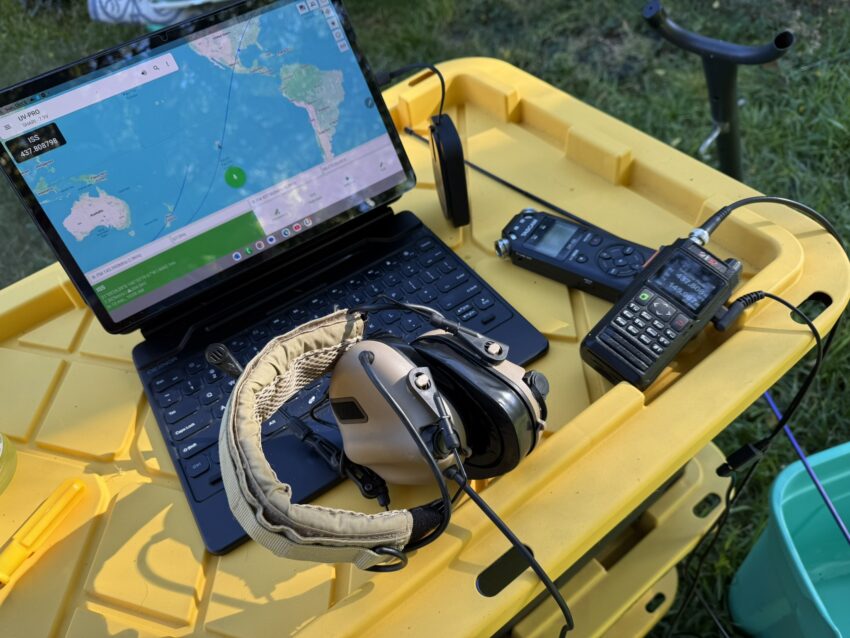Technical Deep Dive Hams Over IP – Modern Networking for Amateur Radio What it is, how it works, and how to get started with SIP phones, softphones, and RF gateways. Abosolute Tech Net presentation Podcast link here. On this page What Is Hams Over IP? Why Hams Over IP Exists How Hams Over IP Works…
Amateur Radio Node Radios – A Practical Guide
N7FGP • Amateur Radio Node Radios — EchoLink, AllStarLink, Hotspots, and More Amateur Radio Node Radios A practical guide by N7FGP — EchoLink • AllStarLink • Hotspots • RF & Non‑RF Nodes ClearNode: a compact all‑in‑one AllStar/EchoLink node with embedded RF module, ideal for home or RV simplex use. SHARI PiHat node: a Raspberry Pi‑based AllStar…
Working the ISS FM Repeater
N7FGP • Working the ISS FM Repeater — Radios, Antennas, Doppler, Tracking, and QSOs Working the ISS FM Repeater A practical guide by N7FGP — Radios • Antennas • Doppler & Tuning • Tracking Software • Making a QSO Portable setup: tablet running a tracker + headphones and recorder; BTech UV-Pro (same platform as Vero…


